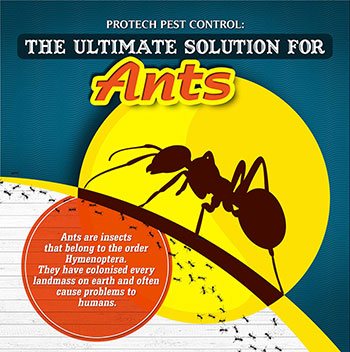The Secrets Of Insect Control Pros! Release The Power Of Advanced Methods And Say Goodbye To Pesky Parasites Completely
The Secrets Of Insect Control Pros! Release The Power Of Advanced Methods And Say Goodbye To Pesky Parasites Completely
Blog Article
Material Produce By-Vazquez Dickson
Are you tired of relying exclusively on sprays to manage pests in your house or work environment? While sprays can be effective, pest control professionals have actually established sophisticated techniques that go beyond simply spraying chemicals.
These strategies not only give a lot more effective and durable options, yet also concentrate on reducing the use of unsafe pesticides. By checking out these innovative techniques, you will discover an entire brand-new world of parasite control approaches that are not just effective, however additionally environmentally friendly.
So, are you ready to take your parasite control video game to the following level?
Integrated Pest Monitoring (IPM)
If you're trying to find an effective and environmentally-friendly approach to pest control, Integrated Insect Administration (IPM) is the option you need. IPM concentrates on long-lasting prevention and administration of bugs, as opposed to simply counting on pesticides. This approach thinks about the particular requirements and actions of bugs, along with the surrounding atmosphere.
By using a combination of techniques such as biological control, environment adjustment, and targeted pesticide usage, IPM intends to decrease the dependence on chemical treatments and lessen injury to non-target microorganisms.
One vital element of IPM is monitoring and determining insects properly. https://docs.google.com/spreadsheets/d/1vyaVynYiVofYShEVoaIbmKKiI0yDBLt8GblnKwGm1Wg/edit#gid=1175125418 entails consistently inspecting and assessing the pest population, as well as determining the specific species existing. By comprehending the biology and behavior of pests, bug control experts can create targeted methods to disrupt their life process and reduce their numbers.
One more crucial aspect of IPM is using non-chemical control approaches whenever possible. This can include physical barriers, such as setting up displays or securing splits and holes, to avoid parasites from going into structures. In addition, social methods, like appropriate hygiene and waste administration, can help eliminate insect food resources and breeding grounds.
When pesticides are required, IPM focuses on using them judiciously and as a last resort. This indicates selecting the least harmful and most reliable option, using it exactly and just to impacted areas, and adhering to all safety guidelines. By minimizing chemical usage, IPM decreases the prospective dangers to human health and wellness and the atmosphere.
Biological Control
To better boost the performance of Integrated Bug Management (IPM), the next subtopic we'll discover is the technique of biological control. https://www.nationalgeographic.com/animals/article/as-drought-worsens-can-kenyan-communities-coexist-with-native-wildlife makes use of natural killers or parasites to control pests.
Here are four key aspects of biological control:.
1. Introduction of all-natural adversaries: In this approach, valuable pests or microorganisms are presented to the location infested with insects. These all-natural enemies exploit the parasites, helping to minimize their population.
2. Preservation of all-natural adversaries: Rather than introducing brand-new microorganisms, this strategy focuses on creating an ideal setting for existing beneficial insects. This can be achieved through supplying food, shelter, and water sources.
3. Enhancement: Below, the variety of natural enemies is raised unnaturally by breeding and releasing them into the infested location. This aids to rapidly lower the pest population.
4. Push-pull method: This method integrates repellents and attractants to adjust the behavior of pests. Repellents push insects far from crops, while attractants entice them in the direction of trap crops or locations where they can be easily regulated.
Habitat Modification
Environment modification plays a vital role in parasite control by changing the environment to prevent pest infestations. By making changes to the physical qualities of an area, you can create an unwelcoming atmosphere for bugs, making it harder for them to endure and grow.
One usual method of habitat modification is getting rid of or lowering potential food resources for parasites. This can consist of appropriate waste management, securing containers, and tidying up food crumbs.
In addition, removing or decreasing areas of standing water can help regulate pests like insects.
Changing the landscape by trimming trees and shrubs away from structures can additionally avoid bugs from accessing your residential property.
Final thought.
So there you have it - the sophisticated methods made use of by insect control experts go beyond just splashing chemicals. Integrated Insect Management (IPM) integrates numerous techniques to successfully manage parasites, while biological control harnesses all-natural adversaries to keep insect populations in check.
Habitat adjustment additionally plays a critical function in stopping bug infestations.
Did you understand that according to a research study, executing IPM methods minimized pesticide usage by an average of 71%? This not just shields our health and the setting but also conserves cash in the long run.
